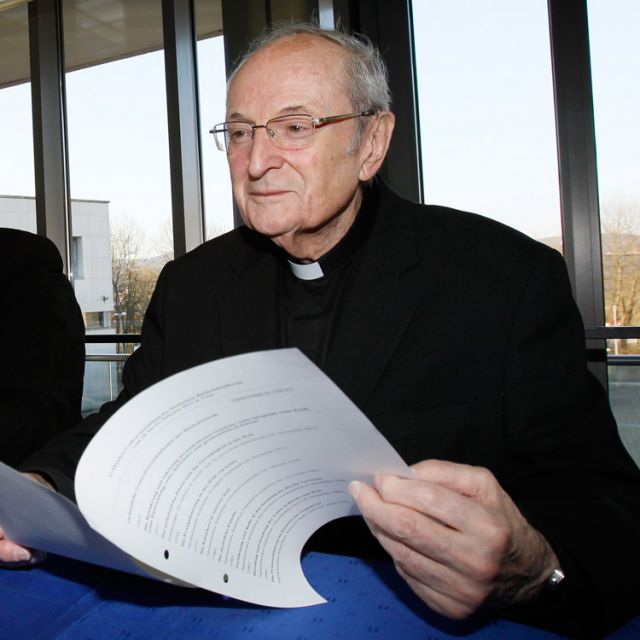"After eight years, we feel a deep, overriding respect and gratitude, but also a sadness -- farewells always hurt, especially when they concern people familiar and revered," said Archbishop Robert Zollitsch of Freiburg im Breisgau.
"The Pope has asked forgiveness for his own shortcomings. I would also ask the Holy Father, in return, to pardon errors committed against him within the church in Germany," the archbishop said Feb. 18 in his opening address to the German bishops' spring plenary.
His remarks were an apparent reference to media criticisms of the Pope, especially during his September 2011 visit to Berlin, as well as the continued decrease in Mass attendance and accusations of sexual abuse against Catholic priests, which have been made by hundreds of Germans since the first case was reported in January 2011.
Archbishop Zollitsch said all Germans had "in some sense shared the honor" bestowed on then-Cardinal Joseph Ratzinger at his 2005 election as Pope.
He added that Pope Benedict had "not succeeded in everything" and had faced criticism for failing "to meet the excited, interrelated expectations of so many worldwide."
However, "truth, clarity and compassion" had formed "three pillars" of the Pope's pontificate, Archbishop Zollitsch said, and most Germans would appreciate his devotion to God.
"The fundamental dedication which shaped our Holy Father's life is so transparent that people revere him as a spiritual and intellectual authority," the archbishop said. "So do most of those who, through their individual decisions and attitudes, cannot or will not understand him."
Archbishop Zollitsch said "many millions of Germans" had felt "spiritually nourished and supported in faith" by the Bavarian-born Pope, particularly during his homecoming visits in 2005, 2006 and 2011.
He added that some Catholics had been disappointed after "expecting certain ecclesiastical reforms," but said the Pope had always acted "in a spirit of honesty and self-criticism" in tackling issues from clerical sex abuse to family decline.
"He recalled again and again that the church must draw the water of life from its own divine, transcendent source, not from the troubled waters of the world, which are too vulnerable to disappointment," the conference president said.
Catholics make up around 31 percent of Germany's population of 82 million.


